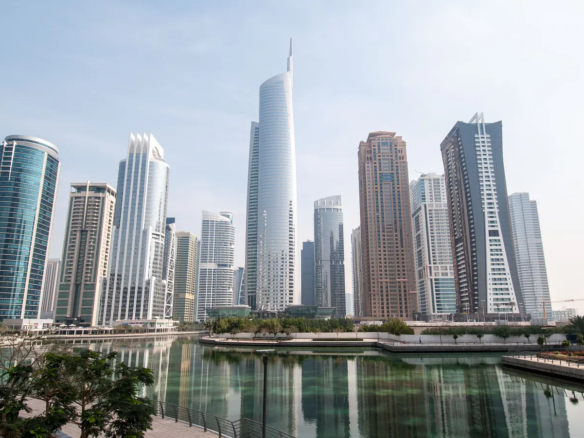Dubai’s real estate market is often shrouded in myths and misconceptions that can deter potential investors and buyers. From assumptions about the exclusivity and expense of properties to misunderstandings about ownership rights and market stability, these misconceptions can obscure the reality of a diverse and dynamic market. Understanding the truth behind these myths is crucial for making informed decisions in a market as vibrant and promising as Dubai’s.
This article aims to debunk some of the most common misconceptions about Dubai real estate, providing a clearer picture of what the market truly offers. Whether you’re considering an investment or looking for a new home, it’s essential to base your decisions on accurate information. By addressing these misconceptions, we hope to provide you with the knowledge and confidence needed to navigate the Dubai real estate landscape successfully.
In the sections that follow, we will explore key misconceptions and offer clarifications to help you make well-informed decisions about your luxury real estate ventures in Dubai.
Misconception 1: Dubai Real Estate is Only for the Ultra-Rich
One of the most pervasive misconceptions about Dubai’s real estate market is that it is exclusively for the ultra-wealthy. Many people believe that only those with substantial financial resources can afford to buy property there. While it’s true that Dubai boasts some of the most extravagant and high-end properties in the world, the real estate market is far more diverse than this stereotype suggests.
Dubai offers a wide range of properties that cater to various budgets. From affordable apartments in burgeoning neighbourhoods to mid-range villas in family-friendly communities, there are numerous options for buyers who are not in the ultra-wealthy category. Areas such as Jumeirah Village Circle, Dubai Sports City, and International City offer affordable housing options without compromising on quality of life. These communities provide residents with a range of amenities and facilities, making them attractive to both singles and families.
Misconception 2: Foreigners Cannot Own Property in Dubai
A prevalent misconception is that foreigners cannot own property in Dubai, which deters many potential investors from considering this vibrant market. However, this is far from the truth. Dubai offers numerous opportunities for foreign investors to own property, primarily through designated freehold areas.
Dubai’s government has taken significant steps to open its real estate market to international buyers. According to Dubai Law No. 7 of 2006, non-UAE nationals can own property in specific freehold areas. These areas include some of Dubai’s most prestigious and sought-after locations such as Downtown Dubai, Dubai Marina, Palm Jumeirah, and Jumeirah Lakes Towers. This law ensures that foreign investors can buy, sell, and lease their properties freely, similar to any other resident.
The concept of freehold ownership means that the buyer owns the property outright, including the land it is built on, indefinitely. This ownership structure provides a high level of security and has been a significant factor in attracting foreign investment.
Misconception 3: It’s Difficult to Get Financing for Property in Dubai
this perception is outdated and does not reflect the current state of the market. In reality, Dubai offers a robust and accessible financing environment, making property investment more attainable than ever.
The Dubai real estate market has evolved significantly over the past few years, with numerous banks and financial institutions offering competitive mortgage products tailored to both residents and non-residents.
For expatriates and non-residents, banks typically finance up to 75-80% of the property value, depending on the property’s location and the applicant’s financial profile. The process of obtaining a mortgage is straightforward, with many banks providing dedicated services to guide foreign investors through the application process. Documentation requirements typically include proof of income, bank statements, and identification documents, similar to mortgage processes in other global markets.
Moreover, the UAE Central Bank has implemented regulations to protect both lenders and borrowers, ensuring a stable and transparent lending environment.
Misconception 4: Real Estate Transactions are Complex and Bureaucratic
Dubai has made significant strides to streamline and simplify the process, ensuring it is efficient and investor-friendly. Dubai’s real estate transaction process is designed to be straightforward, with clear guidelines and requirements that are easy to follow.
The Dubai Land Department (DLD) plays a crucial role in regulating and facilitating property transactions, ensuring transparency and efficiency. The DLD has implemented various measures to simplify the buying and selling process, including online services that allow investors to complete transactions quickly and with minimal paperwork.
One of the key initiatives by the DLD to reduce bureaucracy is the introduction of the “Ejari” system. Ejari is an online registration system that standardizes rental agreements and ensures all lease contracts are registered and regulated by the government. This system not only simplifies the rental process but also protects the rights of both landlords and tenants.
In addition to regulatory measures, Dubai offers various services to assist investors throughout the transaction process. Real estate agents and brokers in Dubai are required to be licensed and registered with RERA.
Misconception 5: Real Estate in Dubai is Better to Buy Without an Agent
This misconception often overlooks the substantial benefits and protections that come with hiring a professional real estate agent. Engaging an agent can streamline the buying process, provide critical market insights, and safeguard your investment. First and foremost, real estate agents in Dubai are required to be licensed by the Real Estate Regulatory Agency (RERA). This ensures that agents are professional and adhere to a strict code of conduct.
One of the great advantages of using a real estate agent is their ability to provide access to a wide range of properties that may not be listed publicly. Agents have networks and connections that allow them to source exclusive listings, giving buyers more options to find a property that truly meets their needs.
Moreover, real estate agents assist in negotiating the best possible price. Their experience in the market enables them to provide a realistic assessment of a property’s value and leverage this knowledge during negotiations. This can lead to substantial savings that might not be achievable without their expertise.
Agents also play a crucial role in managing inspections and property evaluations. They can arrange for professional inspections to identify any potential issues with the property, ensuring that buyers are fully aware of the condition of the property before finalizing the purchase.
While some buyers may initially view agent commissions as an additional cost, it is important to recognize the overall value they bring to the transaction. The expertise, negotiation skills, and comprehensive services provided by real estate agents often result in better financial outcomes and a smoother buying experience.





